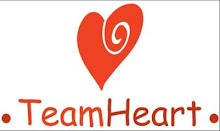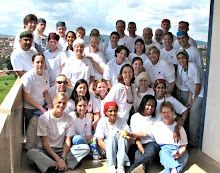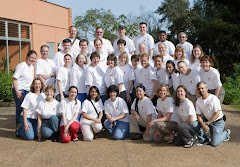
Nelson and Jane, nurse manager of the OR theater
Nelson Thaemert, M.D. writes:
Greetings from Rwanda!
It’s taken several days for me to get a chance to come up for air, so to everyone who has been following things on the blog, please accept my apologies.
We’re on OR day number 5, and have been working from early morning until late at night, so finding time to send greetings and updates has been challenging.
We are currently doing our 8th case, and the team tells me that the patients are sicker and more fragile this year than last. In fact, 7 of these 8 cases have been double valve repairs or replacements. Most have pulmonary hypertension, some are malnourished. All have markedly abnormal hearts. Many are teens that have been too short of breath or undernourished to grow.
The patients all have amazing stories. Our youngest patient is a 14 year old boy, our oldest to date is 37. Our smallest patient has been a 29kg 16 year old, who is roughly the size of skinny 8 year old in the US (we weren’t planning on doing kids, so some of this has been on the fly!) All have sequelae of rheumatic heart disease, and all have been living with this for enough time to develop advanced symptoms of heart failure. Most speak Kinyarwandan, although a few speak some French and a little English.
We’ve operated on a mother of three (6, 3 and 5 months) who is a school teacher for 11 year olds and too fatigued to continue breast feeding her infant. Another is a university student whose father was killed in the genocide and is currently studying biology and chemistry, but the school wants him to drop out because they think he’s going to die of his heart disease. Each story is differently tragic, but strangely similar.
Most of the patients that we have cared for live in poverty that is difficult to comprehend, and digesting their stories becomes very emotional. I hear from Dr. Gene Bukhman, our cardiologist at Parnters in Health, that there are two types of poor people here – dry poor, and wet poor. If you can afford to live in mud hut with a dirt floor and a tin roof, you are likely the former. If you live in mud hut with a dirt floor and a banana thatch roof, you are likely the latter.
All of our patients have done well, and some are beaming during their recovery. Our most challenging case of the trip was last night, when an exhausted OR team left off a critically ill postop patient that we weren’t sure was going to survive the night. Amazingly this morning, she has made dramatic improvements, mostly thanks to our friend Dr. Zara Cooper who was running the ICU overnight.
From a surgical standpoint, we've done significantly more valve repairs than replacements, which is good news for the patients because tissue replacements wear out in 15 years, and mechanical valves require anticoagulation. I do hope we have enough rings! We weren't planning on doing this many double valves, and certainly not this many repairs, so keep your fingers crossed. If anyone is counting, we've done one mitral commissuroplasty, one mitral bioprosthesis with tricuspid ring, one mitral mechanical prosthesis with tricuspid ring, four mitral repairs/rings with a tricuspid ring, and one mechanical aortic & mitral replacement. I continue to be impressed with our surgical collagues' abililty to do a repair to a rheumatic valve, which is notoriously difficult and problematic. From an anesthetic standpoint, bringing our own portable transesophageal echo has been instrumental. Thanks to the folks at Phillips for the loaner, and the screeners in the airport for being understanding! [Quote: WHAT is that?? as I put the echo probe in its carrying case through the scanner]
The hospital is quite advanced by African standards, but there are still the blips that one would imagine. We lost power a number of times in the OR, but the emergency generator kicked in within a few seconds and we never had to hand-crank the bypass pump. Oxygen pressure falls on occasions, so we’ve encountered anesthesia machine alarms that we never hear in the US. One day the air conditioner in the OR mounted high on the wall let out flood of water for unexplained reasons, but luckily nothing got contaminated. We have been doing our best to ration the supplies that were previously shipped or packed in our luggage – it takes an incredible amount of “stuff” to care for 14-15 patients having heart surgery, so stretching it to make it last has become an art form!
After three 15 hour OR days in a row, we slept in and had a late start today. Our original goal was to do 15 cases in 8 days, but between a full ICU and a fatigued OR team, we are only doing one case today and our overall schedule will decompress to only fit in 14. Those who don’t get operated on this year will hopefully survive until the Australian team arrives in the fall, or can be sent to Khartoum, Sudan where an Italian organization has set up a hospital for African cardiac surgery.
Kigali is a clean and vibrant city. The topography looks like a mix between Tuscany and coastal California, with homes built all over a series of lush, green rolling hills. There is a vibrant middle class in the city, most roads are paved, streets are regularly swept (by hand, by the way), food is restaurants is generally good, albeit slow, and the locals are friendly and fairly well dressed. I have yet to have time to venture out as much as some of our non-operating room colleagues, but we stop operating on Sunday evening, so I’ll have a day and half to get out and explore.
I’ll get pictures posted to Facebook when I can, but in the mean time I want everyone to know that we're doing well and thinking of everyone back home. Thanks for all of your kind words of encouragement!
Best regards,
Nelson




Hi Nelson and the whole gang!!!
ReplyDeleteGlad to hear things are going well although tough. You are all doing an amazing job and i can not wait to HUG you all when you get home and hear all your tales and share all your tears. Continue to support each other and hug often as this WILL TRULY change your outlooks on life here at home...
Stay Strong, Stay Safe and smile..
Leslie Sab!!!!!!
:)
Hi there, my Little Brother Nelson:
ReplyDeleteNice to hear you are doing well. I hope you will get a little time to meet the people in the neighbor hood.
A BIG HUG is waiting for you when you return.
Your sister Rose
Team Heart 2009!
ReplyDeleteI am thinking of you all. Gods work is always a challenge! You are amazing professionals and gifted people. We are rooting for America and the African's you are saving!!!
You are in my thoughts and prayers.
Love
Susan Hall